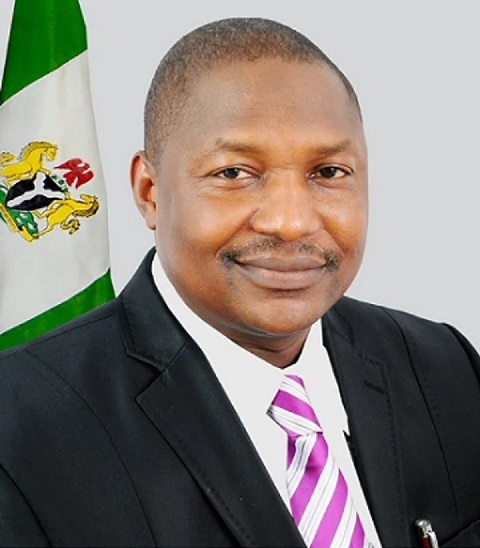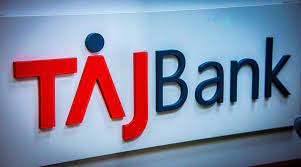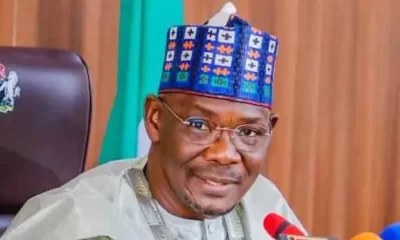COVER
Developing Countries Pay $443.5bn on Public Debts in 2022 – World Bank

By Our Reporter
Amid the biggest surge in global interest rates in four decades, developing countries spent a record $443.5 billion to service their external public and publicly guaranteed debt in 2022, the World Bank’s latest International Debt Report shows.
The increase in costs shifted scarce resources away from critical needs such as health, education, and the environment.
Debt-service payments—which include principal and interest—increased by 5 percent over the previous year for all developing countries.
The 75 countries eligible to borrow from the World Bank’s International Development Association (IDA)—which supports the poorest countries—paid a record $88.
9 billion in debt-servicing costs in 2022.Over the past decade, interest payments by these countries have quadrupled, to an all-time high of $23.6 billion in 2022. Overall debt-servicing costs for the 24 poorest countries are expected to balloon in 2023 and 2024—by as much as 39 percent, the report finds.
“Record debt levels and high interest rates have set many countries on a path to crisis,” said Indermit Gill, the World Bank Group’s Chief Economist and Senior Vice President. ‘Every quarter that interest rates stay high results in more developing countries becoming distressed—and facing the difficult choice of servicing their public debts or investing in public health, education, and infrastructure.
“The situation warrants quick and coordinated action by debtor governments, private and official creditors, and multilateral financial institutions—more transparency, better debt sustainability tools, and swifter restructuring arrangements. The alternative is another lost decade.”
Surging interest rates have intensified debt vulnerabilities in all developing countries. In the past three years alone, there have been 18 sovereign defaults in 10 developing countries—greater than the number recorded in all of the previous two decades. Today, about 60 percent of low-income countries are at high risk of debt distress or already in it.
Interest payments consume an increasingly large share of low-income countries’ export, the report finds. More than a third of their external debt, moreover, involves variable interest rates that could rise suddenly. Many of these countries face an additional burden: the accumulated principal, interest, and fees they incurred for the privilege of debt-service suspension under the G-20’s Debt Service Suspension Initiative (DSSI).
The stronger US dollar is adding to their difficulties, making it even more expensive for countries to make payments. Under the circumstances, a further rise in interest rates or a sharp drop in export earnings could push them over the edge.
As debt-servicing costs have climbed, new financing options for developing countries have dwindled. In 2022, new external loan commitments to public and publicly guaranteed entities in these countries dropped by 23% to $371 billion—the lowest level in a decade.
Private creditors largely abstained from developing countries, receiving $185 billion more in principal repayments than they disbursed in loans.
That marked the first time since 2015 that private creditors have received more funds than they put into developing countries. New bonds issued by all developing countries in international markets dropped by more than half from 2021 to 2022, and issuances by low-income countries fell by more than three-quarters. New bond issuance by IDA-eligible countries fell by more than three-quarters to US$3.1 billion.
With financing from private creditors drying up, the World Bank and other multilateral development banks stepped in to help close the gap. Multilateral creditors provided $115 billion in new low-cost financing for developing countries in 2022, nearly half of which came from the World Bank.
Through IDA, the World Bank provided $16.9 billion more in new financing for these countries than it received in principal repayments—nearly three times the comparable number a decade ago. In addition, the World Bank disbursed $6.1 billion in grants to these countries, three times the amount in 2012.
The latest International Debt Report marks the publication’s 50th anniversary. It highlights key insights from the World Bank’s International Debt Statistics database—the most comprehensive and transparent source of external debt data of developing countries.
The new edition also features an expanded analytical framework, one that goes beyond the latest data to examine near-term outlook for debt as well. It also includes an overview of the Bank’s debt-related activities and an analysis of emerging trends in debt management and transparency.
“Knowing what a country owes and to whom is essential for better debt management and sustainability,” said Haishan Fu, Chief Statistician of the World Bank and Director of the World Bank’s Development Data Group.
“The first step in avoiding a crisis is having a clear picture of the challenge. And when problems arise, clear data can guide debt restructuring efforts to get a country back on track towards economic stability and growth.
“Debt transparency is the key to sustainable public borrowing and accountable, rules-based lending practices which are so vital to ending poverty on a livable planet.”
The report notes that IDA-eligible countries have spent the last decade adding to their debt at a pace that exceeds their economic growth—a red flag for their prospects in the coming years. In 2022, the combined external debt stock of IDA-eligible countries hit a record US$1.1 trillion—more than double the 2012 level. From 2012 through 2022, IDA-eligible countries increased their external debt by 134%, outstripping the 53% increase they achieved in their gross national income (GNI).
COVER
DAILY ASSET Appoints Torough, Editor, Names Eze, Deputy

By Laide Akinboade, Abuja
As part of efforts to reposition the newspaper for optimum corporate performance, the management of Asset Newspapers Limited, Publishers of DAILY ASSET, has announced the appointment of David Torough as the Editor of the Abuja-based national daily.
A statement by the management said the appointments were part of the company’s new strategy to further penetrate the various states in the country and raise its readership and patronage.
“DAILY ASSET is widely acceptable across the country and to maintain our leadership position, we need to increase management presence, hence the need to create new Bureau offices in some locations outside Abuja and Lagos,” the statement quoted the Publisher/ Editor-in-Chief, Dr Cletus Akwaya to have said.
In a statement yesterday, Publisher and Editor-in-Chief of the fast-growing daily, Dr. Cletus Akwaya said the appointment was part of the new strategy to properly situate the paper for better productivity.
“DAILY ASSET has a commitment with the Nigerian people. We are determined to weather the storm and give Nigerian readers a Newspaper that satisfies their yearnings and reading pleasure and we can only do that with the right set of professionals,” the statement said.
Akwaya, a former Commissioner of Information from Benue State said the difficult times being faced by Nigerians posed a great challenge to the media as the people deserved credible information with which to make choices.
“We have a bond with the people, to offer credible information at all times in the best tradition of the Nigerian Press and on this scale of objectivity, truth and fairness, we pledge to remain steadfast no matter the challenges,” Akwaya was quoted to have said.
He said the newspaper will maiantin its daily print run and circulation to all states of the federation and urged advertisers to take advantage of the deep penetration of the Daily Asset brand to send their messages.
Torough, the new Editor has had a steady rise in the Newspaper in the last five years.
A graduate of Mass communication of the Benue State University, Makurdi, Torough joined the company in 2022 as Benue State Correspondent. He was spotted for his brilliance and redeployed to Abuja the following year and promoted to Deputy News Editor. He was subswuently named Deputy Editor of the paper, a position he held until the recent appointment.
Torough has attended several journalistic workshops and trainings to properly equip himself for the task ahead.
The statement also said the Management named Eze Okechukwu as Deputy Editor.
Before his elevation as Deputy Editor, Eze has been Deputy Politics Editor and DAILY ASSET Newspaper correspondent covering the Senate, having joined the organization in 2021.
Born on March 10, 1975, Eze holds a Masters Degree in Mass Communication from the Enugu State University of Science and Technology.
Eze began his journalism career with Daily Star, Enugu and later worked with Daily Trust Newspaper, Abuja as sports reporter.
Aside from his journalistic excellence, he has a great deal of passion for sports.
COVER
Insecurity: Northern Govs, Monarchs Seek Six-month Mining Suspension

From Ngutor Dekera, Kaduna and Aliyu Askira, Kano
Northern governors and traditional rulers yesterday called for the suspension of mining activities across the region for six months, blaming illegal mining for worsening insecurity in many states.The resolution was contained in a communiqué issued after a joint meeting of the Northern States Governors’ Forum and the Northern Traditional Rulers’ Council held at the Sir Kashim Ibrahim House, Kaduna.
The meeting, chaired by the Gombe State Governor and NSGF Chairman, Muhammadu Yahaya, had in attendance the 19 northern governors and chairmen of the 19 states’ traditional councils. The Forum expressed concern over the escalating violence in parts of the North, including the killings and abductions recently recorded in Kebbi, Kwara, Kogi, Niger, Sokoto, Jigawa and Kano states, as well as renewed Boko Haram attacks in Borno and Yobe.“The Forum extends its deepest condolences and solidarity to the governments and good people of the affected states,” the communiqué said, noting that the attacks on schoolchildren and other citizens had become “unacceptable tragedies” that required urgent collective action.It commended President Bola Tinubu for what it described as the Federal Government’s “firm response” to recent abductions and insurgency threats, especially the rescue of some abducted pupils.The governors also saluted security agencies for their sacrifices on the frontlines.“We resolved to renew our support for every step taken by the President and Commander-in-Chief to take the fight to insurgents’ enclaves in order to end the criminality,” the Forum stated.A major highlight of the meeting was the North’s renewed push for the establishment of state police, with governors and traditional rulers insisting that decentralised policing had become inevitable.“The Forum reaffirms its wholehearted support and commitment to the establishment of state police,” the communiqué added, urging federal and state lawmakers from the region to “expedite action for its actualisation.”On illegal mining, the governors said criminal mining networks were fuelling violence and providing resources for armed groups.As a corrective measure, they asked Tinubu to direct the Minister of Solid Minerals to impose a six-month suspension of mining activities in order to allow for a full audit and revalidation of licences.“The Forum observed that illegal mining has become a major contributory factor to the security crises in Northern Nigeria. “We strongly recommend a suspension of mining exploration for six months to allow proper audit and to arrest the menace of artisanal illegal mining,” it said.To strengthen the fight against insecurity, the governors also announced the creation of a regional Security Trust Fund.Under the proposed arrangement, each state and its local governments will contribute ₦1bn monthly, to be deducted at source under an agreed framework.They said the fund would help provide sustainable financing for joint operations, intelligence-driven interventions and coordinated security responses across the region.At the end of the meeting, the Forum reaffirmed its commitment to unity and collective responsibility.“Only through unity, peer review and cooperation can we overcome the pressing challenges before us,” it declared.The Forum agreed to reconvene on a date to be announced.Meanwhile, Nigeria’s worsening security crisis took a grim turn on Monday as bandits launched fresh attacks in Kano State, abducting 25 villagers, even as the Federal Government raced to secure the release of more than 300 Catholic school children kidnapped in Niger State.In the early hours of Monday, armed bandits invaded Unguwar Tsamiya—popularly called Dabawa—in Shanono Local Government Area of Kano State, whisking away nine men and two women after shooting into the air and assaulting residents. The attackers also rustled two cows.A resident lamented the community’s helplessness: “We cannot do otherwise; most of us cannot leave because we have nowhere to go. This is our place, our land and everything is here.”The assault came less than 24 hours after a similar attack on Yan Kamaye in Tsanyawa LGA, a community along the volatile Katsina border.In Niger State, National Security Adviser Nuhu Ribadu has assured distraught families of St. Mary’s Co-Education School, Kontagora that the more than 300 students and staff abducted on November 21 will return home “soon.” Ribadu, who led a high-level federal delegation to the school on Monday, said the abductees are safe, though he offered no specifics on their location or the status of rescue operations.According to Daniel Atori, spokesman for the Catholic bishop overseeing the school, the NSA reassured officials: “The children are where they are and will come back safely.”The St. Mary’s attack is part of a worrying resurgence of mass kidnappings reminiscent of the 2014 Chibok schoolgirls’ abduction. Security analysts warn that banditry has evolved into a “structured, profit-seeking industry,” with hundreds of Nigerians abducted in November alone.The Kontagora school abduction occurred the same week 25 girls were kidnapped in Kebbi State—victims who authorities say have since been rescued through “non-kinetic” means. About 50 of the St. Mary’s hostages have also managed to escape.Ribadu’s delegation, which included the Minister of Humanitarian Affairs and the Director-General of the Department of State Services (DSS), reaffirmed the government’s commitment to securing the freedom of all abducted citizens.As communities from Kano to Niger continue to bear the brunt of these violent incursions, the escalating spate of kidnappings underscores the urgent national demand for a more decisive and coordinated security response.COVER
Abacha Loot Probe: Malami Faces EFCC Panel Daily in December

By David Torough, Abuja
The Economic and Financial Crimes Commission (EFCC) said former Attorney‑General of the Federation and Minister of Justice, Abubakar Malami, will face a team of interrogators at its office daily throughout December.A credible source in the EFCC said on Monday that the daily appearance was part of an ongoing investigation into the whereabouts of an alleged 490 million dollars Abacha loot secured through a Mutual Legal Assistance (MLAT) request.
The source said that Malami, who was summoned for interrogation by the EFCC on Saturday, was barred from leaving Nigeria for the next one month.According to the source, one of the conditions for his release on Saturday was that he should report daily to the EFCC Headquarters in Abuja for further interrogation.The source said Malami would have to appear daily at the anti-graft office due to the volume of the investigation and the seriousness of the charges against him.”We seized his passport, it is the normal routine during investigation, but he has to report at the EFCC headquarters in Abuja every day for the next month.”He will be reporting for further investigation throughout December.”He will be reporting every day, starting from Dec. 1st to Dec. 31st.He will appear before the team of investigators for the entire month of December.”He will be reporting to EFCC for investigation for the period because of the volume of the investigation and the seriousness of the charges against him,” the source added.According to the source, a fact sheet on the former minister revealed that Malami had several issues to clarify with the EFCC within the coming weeks.“We have asked him to explain the whereabouts of the $490 million Abacha loot secured through MLAT.“We didn’t say he stole money, but he should account for the loot. This is one of the issues he will clarify to our investigators.”The commission cited the large volume of documents he must review and the need for extensive interviews as reasons for seizing his passport.The source said EFCC would not engage in a war of words but would release its findings after a thorough investigation.Malami, in a statement by his media aide, Mohammed Doka, on Monday in Abuja, however, described the EFCC investigation as a political witch‑hunt.He confirmed he honored an EFCC invitation on Nov. 28, describing the engagement as fruitful and expressing confidence that the probe would vindicate him.Malami described the EFCC’s allegations as baseless, illogical and devoid of substance, insisting they collapse under factual scrutiny.


















